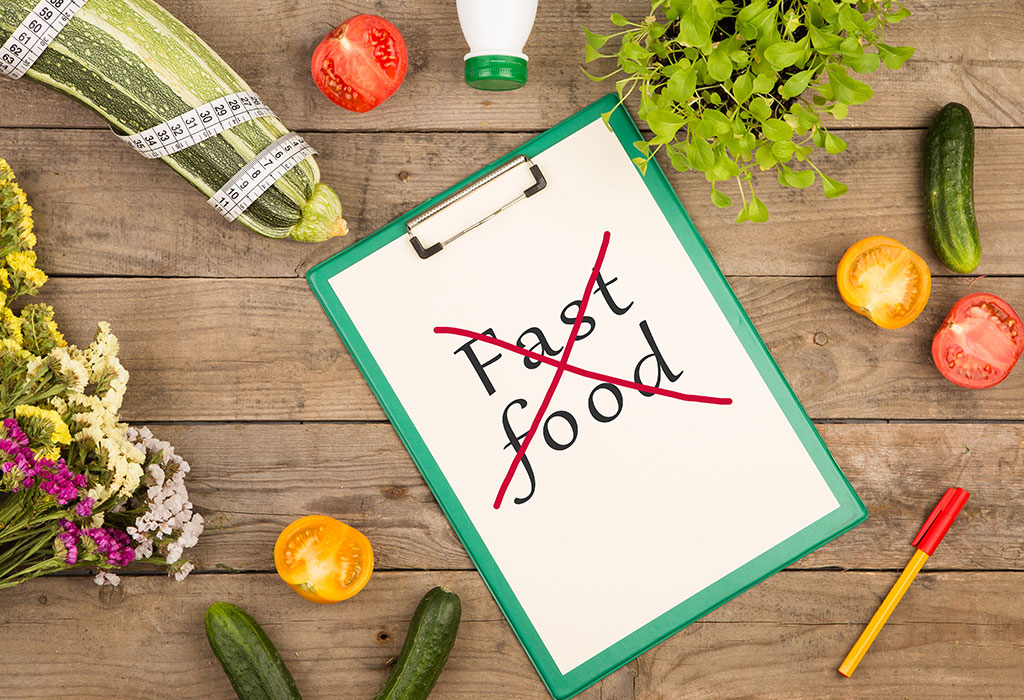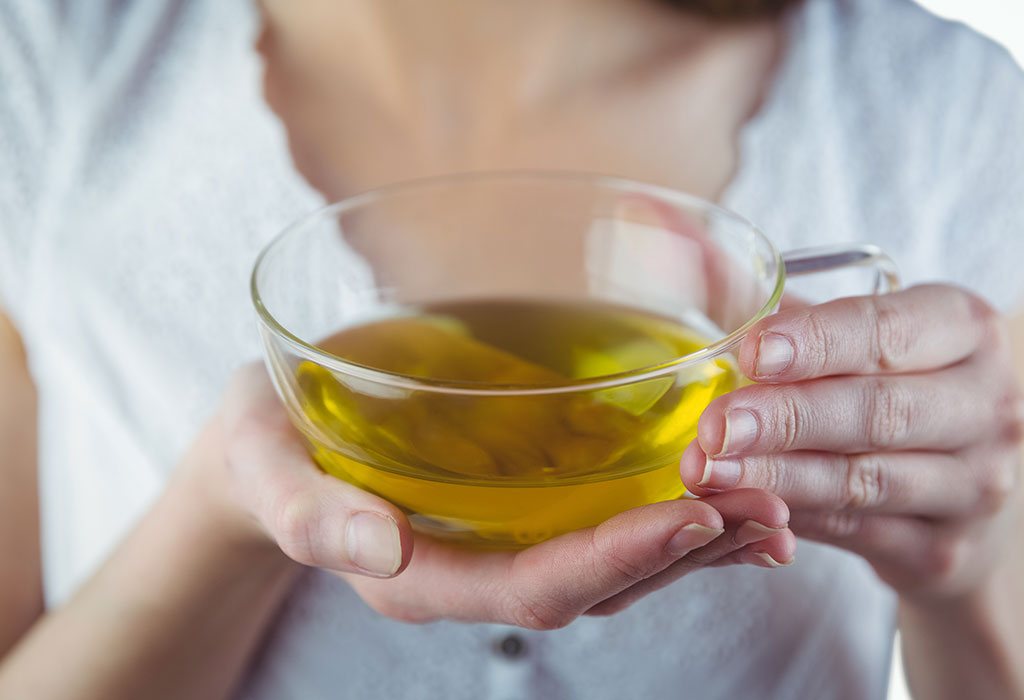In this Article
- What Is Postpartum Oedema?
- Causes of Postpartum Swelling/Oedema
- Symptoms of Swelling After Pregnancy
- Does the Swelling Go Away on Its Own?
- What Is the Treatment for Post-pregnancy Oedema?
- What Can You Do to Reduce Post-pregnancy Swelling?
- How to Deal With Incision Swelling After Giving Birth
- When Should You Worry About Postpartum Oedema?
- How to Prevent Post-pregnancy Oedema
- FAQ
During pregnancy, women go through many physical changes. You might be waiting to just get done with it so you can get back to your normal lifestyle. Most think that once this phase is over, every thing will fall into place, but that’s not true – you may encounter problems even after childbirth, one of them being postpartum oedema.
What Is Postpartum Oedema?
Postpartum oedema is a condition that women go through right after pregnancy. This condition can cause swelling of the face, ankles, and belly. It can also spread to the hands and legs. The swelling can sometimes be painful, making the situation unpleasant.
Causes of Postpartum Swelling/Oedema
There are a few reasons why postpartum oedema occurs in the pregnant women:
1. Hormones
Progesterone is a hormone that is produced in a large quantity during pregnancy. This can cause the body to retain sodium and water, which leads to swelling .
2. IV Fluids
IV fluids are used during labour to prevent dehydration. However, it can also lead to inflammation – this is likely to happen after a caesarian birth.
3. Hypoproteinemia and Anemia
Hypoproteinemia is a condition characterised by lower-than-normal levels of protein in the body. When a person has a deficiency of red blood cells in her body, it’s called anemia. If a mother contracts any or both of these ailments after delivery, she may, in turn, suffer from postpartum oedema.
4. Hypertension
Medical conditions like chronic hypertension and pregnancy-induced hypertension as well as hypothyroid renal disorders can be a cause of postpartum swelling.
Symptoms of Swelling After Pregnancy
Some of the symptoms of postpartum oedema are:
- Swollen hands and feet
- Weight gain
- Swollen ankles
- Puffy skin
Does the Swelling Go Away on Its Own?
After pregnancy, if you notice swelling in your arms, feet and other parts of the body, don’t panic as it will go away on its own. At most, it might take a couple of weeks. Swelling happens in most women because of fluids that remain in the body after childbirth.
What Is the Treatment for Post-pregnancy Oedema?
Post-pregnancy oedema is common and usually does not need any special treatment. There are simple treatments which you can try at home which can reduce the swelling and pain. However, if the situation gets worse, you need to consult a doctor since it could be a sign of other health complications.
What Can You Do to Reduce Post-pregnancy Swelling?
Some home remedies for swollen feet after pregnancy are listed below:
1. Massage
Give yourself a soothing massage as this improves blood flow and eventually soothes pain.
2. Exercise
Doing exercise is a great way to get back your pre-pregnancy shape and also reduce swelling.
3. Drink Lots of Water
Water helps to flush out excess fluids from the body, thus reducing swelling. A lot of people think that if you drink water, there will be more fluids in the body. However, that is incorrect.
4. Eat Fruits
Fruits have anti-inflammatory properties, so eating a lot of them will help to increase metabolism and speed up healing.
5. Eat Proteinrich Foods
Low protein in the body is a reason for swelling, and so it is beneficial to start adding high protein foods in your diet.
6. Keep Processed & Fast Foods Away
Avoid processed and fast foods as they have high levels of sodium which leads to the retention of fluids in the body.

7. Elevate Your Feet and Hands
Elevate your hands and feet regularly to improve blood circulation. This will eventually reduce the swelling in the body.
8. Avoid Being in a Stationary Position
Body movement matters a lot when it comes to blood circulation. Sitting and standing in the right way and for the right amount of time helps to reduce swelling and better the blood flow.
9. Rest Well
Avoid exerting yourself when your body is swollen and if you are experiencing pain. Rest it out if things get too much.
10. Soak Your Feet
Soaking your feet in warm water with sea salt or bath salts can help soothe the pain and reduce swelling.
11. Do Yoga in the Morning
Yoga is yet another stress and pain reliever. It helps in better circulation of the blood, leading to less swelling in the body.
12. Herbal Teas
Coffee and other caffeinated products can increase dehydration, prompting the body to retain more fluids . This will only delay your recovery from postpartum oedema. Instead, replace these beverages with herbal teas like dandelion tea to battle swelling and prevent fluid retention in the body.

13. Reflexology
This is a great way to soothe those aching muscles. Reflexology is calming and helps a lot with pain and swelling of the feet.
14. Cabbage Leaves
Placing cabbage leaves on the swollen areas helps to reduce pain and discomfort as it draws out extra fluids from the body.
15. Avoid Tight Clothes
When in pain from the swelling, allow your body to breathe by wearing loose and comfortable clothes.
16. Avoid Heavy Exercises
Exercising is definitely a great relief for swollen feet after pregnancy, but heavy exercise can inadvertently lead to body ache that can make things worse.
17. Wear Socks for Support
The clothes you wear make a lot of difference. Wearing socks that do not have tight elastic but are supportive can help relieve postnatal oedema.
18. Relaxing Bath
A relaxing bath in warm water along with soothing oils is helpful. Ask your doctor about the oils that are safe to use. Avoid those you feel might cause an allergic reaction.

19. Reduce the Intake of Salt
Salt is nothing but sodium in a different form. Excessive intake of salt can lead to water retention and swelling in the body. Check the ingredients label for the amount of salt before buying processed foods like cakes, chips and soft drinks.
20. Eat Foods Rich in Potassium
The sodium and potassium content in the body should always be balanced. Consuming more potassium-rich foods such as bananas, avocados, spinach, yoghurt and peanut butter will bring down the levels of sodium in the blood.
How to Deal With Incision Swelling After Giving Birth
After a C-section delivery, there are increased chances of developing swellingin the legs. In such cases, you can use an ice compressor or take a shower in warm water to reduce the pain. Avoid bath lotions if your stitches haven’t fully healed.
When Should You Worry About Postpartum Oedema?
Postpartum oedema is not a disease or sickness to be worried about. Usually, it goes down in a week’s time. Very rarely does the condition last for weeks. However, in the following cases, you may need to seek medical help:
1. If It Lasts for Several Weeks
If your oedema lasts for several weeks, it is best to consult a doctor. You can try out various methods to reduce the pain.
2. Unbearable Pain
The pain may be excruciating and you may need some form of pain relief medication. But in your weakened state, it is not a good idea to start popping pills without consulting a doctor.
3. Breathing Problems
Breathing problems can be a sign of an impending congestive heart failure. You will need immediate medical attention if this is the case.
How to Prevent Post-pregnancy Oedema
The swelling that happens after pregnancy is natural. However, there are some ways to prevent post-pregnancy swelling. Although these are helpful, they do not work for all women. Some preventive methods are:
- Drink plenty of water
- Wear comfortable shoes
- Avoid standing in a stationary position for a long time
- Avoid drinking caffeine
- Do mild post-pregnancy workouts
- Do not skip on your postpartum rest
FAQ
Will My Feet Ever Get Back to the Size They Were Before Pregnancy?
If you are panicking about your feet never going back to their original shape, then you don’t need to worry. The swelling that happens after pregnancy is a natural process because of excess fluid in the body. Over time, your feet will get back to their natural form.
The journey of pregnancy and post-pregnancy is challenging. While you are already going through a lot, swelling and pain can make the transition more difficult. However, it is a common condition that many women undergo after pregnancy. Hence, stay calm and prepared. By following the steps mentioned above, the pain can be managed or even avoided.








